December 3, 2014 •
Oakland Council Set to Vote on New Ethics Rules
City Council is preparing to hold a final vote on the Oakland Government Ethics Act after voters overwhelmingly approved a measure to strengthen the city’s Public Ethics Commission (PEC). Measure CC, a charter amendment, gives the PEC authority to enforce […]
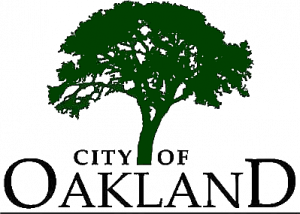 City Council is preparing to hold a final vote on the Oakland Government Ethics Act after voters overwhelmingly approved a measure to strengthen the city’s Public Ethics Commission (PEC). Measure CC, a charter amendment, gives the PEC authority to enforce the city’s lobbying laws and to levy fines in excess of $1,000 for violations.
City Council is preparing to hold a final vote on the Oakland Government Ethics Act after voters overwhelmingly approved a measure to strengthen the city’s Public Ethics Commission (PEC). Measure CC, a charter amendment, gives the PEC authority to enforce the city’s lobbying laws and to levy fines in excess of $1,000 for violations.
The Oakland Government Ethics Act compliments the charter amendment by providing a new set of ethics rules including a revolving-door provision and a new lower annual gift limit of $250. Gifts from persons who do business or seek to do business with the city would further be limited to $50 annually.
The council is scheduled to hold a final vote on the legislation on December 9, 2014.
November 18, 2014 •
Virginia Ethics Panel Readies Recommendations for Governor
The ethics panel recently assembled by Gov. Terry McAuliffe has assembled its recommendations for reforming laws covering gifts and conflicts of interest. The panel recommended a $250 gift limit to public officials as well as creating a new ethics review […]
 The ethics panel recently assembled by Gov. Terry McAuliffe has assembled its recommendations for reforming laws covering gifts and conflicts of interest. The panel recommended a $250 gift limit to public officials as well as creating a new ethics review commission with the power to investigate complaints and hand out penalties for violations.
The ethics panel recently assembled by Gov. Terry McAuliffe has assembled its recommendations for reforming laws covering gifts and conflicts of interest. The panel recommended a $250 gift limit to public officials as well as creating a new ethics review commission with the power to investigate complaints and hand out penalties for violations.
Other recommendations include requiring electronic filing of disclosure forms and prohibiting board and commission members from voting on matters affecting their interests.
The panel will formally submit its recommendations to the governor on December 1.
November 18, 2014 •
Arkansas Lawmakers Prefile Ethics Bill to Clarify Recent Changes
Lawmakers have prefiled a bill to clarify new ethics laws contained in a constitutional amendment passed by voters on November 4, 2014. The amendment prohibits lobbyist gifts and corporate contributions, but the Ethics Commission needs further legislative authority to enforce […]
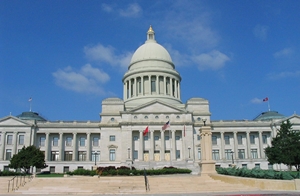 Lawmakers have prefiled a bill to clarify new ethics laws contained in a constitutional amendment passed by voters on November 4, 2014.
Lawmakers have prefiled a bill to clarify new ethics laws contained in a constitutional amendment passed by voters on November 4, 2014.
The amendment prohibits lobbyist gifts and corporate contributions, but the Ethics Commission needs further legislative authority to enforce the constitutional changes.
Democratic Rep. Warwick Sabin and Republican Sen. Jon Woods filed House Bill 1002 as a shell bill, without any specific proposals, to publicize the issue ahead of the session start date on January 12, 2015.
Photo of the Arkansas State Capitol by jglazer75 on Wikimedia Commons.
November 17, 2014 •
Pennsylvania Governor-Elect Wolf Bans Gifts to Transition Team
Gov.-elect Tom Wolf, fresh off of a victorious first campaign for public office, is already taking steps to ensure the ethical conduct of his administration. Wolf is requiring members of his transition team to sign a code of conduct including […]
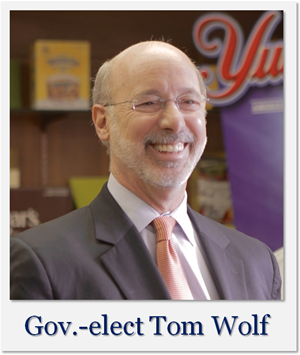 Gov.-elect Tom Wolf, fresh off of a victorious first campaign for public office, is already taking steps to ensure the ethical conduct of his administration.
Gov.-elect Tom Wolf, fresh off of a victorious first campaign for public office, is already taking steps to ensure the ethical conduct of his administration.
Wolf is requiring members of his transition team to sign a code of conduct including a ban on accepting gifts, one he plans to extend to the entire executive branch upon taking office.
The pledge also includes a requirement to disclose current and future conflicts of interest and a promise to not use their position for personal gain.
Photo of Gov.-elect Tom Wolf by Bruestle2 on Wikimedia Commons.
November 5, 2014 •
Arkansas Passes Ethics Constitutional Amendment
Voters passed a constitutional amendment on the November 4 ballot to extend term limits for state lawmakers in exchange for strict ethics laws for lobbyists and corporations. The Arkansas Elected Officials Ethics, Transparency, and Financial Reform Amendment of 2014 bans […]
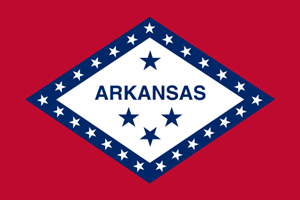 Voters passed a constitutional amendment on the November 4 ballot to extend term limits for state lawmakers in exchange for strict ethics laws for lobbyists and corporations.
Voters passed a constitutional amendment on the November 4 ballot to extend term limits for state lawmakers in exchange for strict ethics laws for lobbyists and corporations.
The Arkansas Elected Officials Ethics, Transparency, and Financial Reform Amendment of 2014 bans corporate and union contributions to political campaigns, prohibits gifts from lobbyists to legislative and executive officials, and extends term limits for legislators to at least 16 years.
The new provision allows lawmakers to serve 16 years in the same office, or even longer for senators winning special two-year terms after each decennial census and redistricting process.
The amendment is effective today, November 5, 2014.
October 15, 2014 •
WA Ethics Board Limits Free Meals for Legislators
The Washington Legislative Ethics Board held a board meeting on October 14, 2014 to finalize rules defining “infrequent occasions” in the context of free meals accepted by state legislators. Section 42.52.150(5) of the Revised Code of Washington allows public officials […]
 The Washington Legislative Ethics Board held a board meeting on October 14, 2014 to finalize rules defining “infrequent occasions” in the context of free meals accepted by state legislators. Section 42.52.150(5) of the Revised Code of Washington allows public officials to accept gifts in the form of food and beverage on infrequent occasions so long as attendance at such a meal is related to the performance of official duties. The Board voted unanimously to define infrequent occasions as up to 12 meals total per calendar year.
The Washington Legislative Ethics Board held a board meeting on October 14, 2014 to finalize rules defining “infrequent occasions” in the context of free meals accepted by state legislators. Section 42.52.150(5) of the Revised Code of Washington allows public officials to accept gifts in the form of food and beverage on infrequent occasions so long as attendance at such a meal is related to the performance of official duties. The Board voted unanimously to define infrequent occasions as up to 12 meals total per calendar year.
The scope of the rule is limited to food and beverage paid for by a registered lobbyist or lobbyist employer. A qualifying meal under the rule is breakfast, lunch, or dinner, regardless of cost, when the guest would normally be expected to sit down and eat, such as in a restaurant or private residence.
The Board was careful to maintain the exceptions in the Ethics Act permitting public officials to accept complimentary food and beverages at hosted receptions and in other limited circumstances.
This rule takes effect January 1, 2015.
October 13, 2014 •
Arkansas Ethics Ballot Measure Offers Tradeoff
A proposed constitutional amendment on the November 4, 2014, ballot will determine whether voters are willing to extend term limits for state lawmakers in exchange for strict ethics laws for lobbyists and corporations. Issue 3 will ban corporate and union […]
 A proposed constitutional amendment on the November 4, 2014, ballot will determine whether voters are willing to extend term limits for state lawmakers in exchange for strict ethics laws for lobbyists and corporations. Issue 3 will ban corporate and union gifts to political campaigns, ban lobbyist gifts to legislative and executive officials, and extend term limits for legislators to at least 16 years.
A proposed constitutional amendment on the November 4, 2014, ballot will determine whether voters are willing to extend term limits for state lawmakers in exchange for strict ethics laws for lobbyists and corporations. Issue 3 will ban corporate and union gifts to political campaigns, ban lobbyist gifts to legislative and executive officials, and extend term limits for legislators to at least 16 years.
Under the current state constitution, lawmakers typically serve no more than six years in the House and eight years in the Senate. The ballot measure would allow lawmakers to serve 16 years in the same office, or even longer for senators winning special two-year terms after each decennial census and redistricting process.
Adding term limits to the bill helped the ethics package pass the Legislature, but has decreased the popularity of the ballot measure in pre-election polls.
October 1, 2014 •
Georgia Ethics Commissioners Discuss Path Forward
The state ethics commission met September 30, 2014, for the first public meeting following the firing of former Executive Secretary Holly LaBerge. The commission closed 14 complaints against officials and candidates, approved three new advisory opinions, and discussed the agency’s […]
 The state ethics commission met September 30, 2014, for the first public meeting following the firing of former Executive Secretary Holly LaBerge. The commission closed 14 complaints against officials and candidates, approved three new advisory opinions, and discussed the agency’s future.
The state ethics commission met September 30, 2014, for the first public meeting following the firing of former Executive Secretary Holly LaBerge. The commission closed 14 complaints against officials and candidates, approved three new advisory opinions, and discussed the agency’s future.
New staff attorneys Robert Lane and Bethany Whetzel have identified nearly 200 open ethics cases needing processed.
The commission will continue to consider recently drafted amendments to campaign and lobbying rules with the hope of passing the amendments by the end of the year. The amendments will clarify campaign reporting thresholds, permit gift splitting by lobbyists, and require reporting of gifts to family members of officials.
September 12, 2014 •
Tougher Gift Limits Proposed for Arlington County
Arlington County Board member John Vihstadt is calling for tougher gift restrictions for county employees and officials. In the wake of former Virginia governor Bob McDonnell and his wife being convicted on corruption charges, Vihstadt hopes to place a $100 […]
 Arlington County Board member John Vihstadt is calling for tougher gift restrictions for county employees and officials. In the wake of former Virginia governor Bob McDonnell and his wife being convicted on corruption charges, Vihstadt hopes to place a $100 yearly limit on gifts from any source.
Arlington County Board member John Vihstadt is calling for tougher gift restrictions for county employees and officials. In the wake of former Virginia governor Bob McDonnell and his wife being convicted on corruption charges, Vihstadt hopes to place a $100 yearly limit on gifts from any source.
The current Code of Ethics states officials should ensure gifts are not received in exchange for official acts and officials may not accept gifts from individuals with whom the official does business. Vihstadt, running for reelection, argues the current code only described principles of conduct rather than definite rules preventing unethical influence on public officials.
September 9, 2014 •
Georgia Commission Prepares to Amend Rules
The state ethics commission is preparing to amend rules regarding campaign finance and lobbyist reporting. The campaign finance changes include allowing the commission to raise or lower campaign contribution limits at the end of four-year election cycles rather than every […]
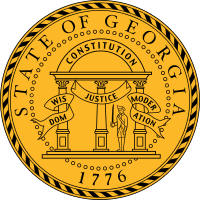 The state ethics commission is preparing to amend rules regarding campaign finance and lobbyist reporting. The campaign finance changes include allowing the commission to raise or lower campaign contribution limits at the end of four-year election cycles rather than every calendar year. The rules would also clarify only contributions to candidates can trigger the $25,000 annual registration and reporting threshold for individuals or entities making contributions.
The state ethics commission is preparing to amend rules regarding campaign finance and lobbyist reporting. The campaign finance changes include allowing the commission to raise or lower campaign contribution limits at the end of four-year election cycles rather than every calendar year. The rules would also clarify only contributions to candidates can trigger the $25,000 annual registration and reporting threshold for individuals or entities making contributions.
Lobbying amendments would require reporting for gifts to family of officials and permit gift splitting by multiple lobbyists so long as a single lobbyist does not exceed the $75 limits.
A public hearing on the proposed changes is scheduled for September 30, 2014.
August 25, 2014 •
California Bill to Prohibit Lobbyist Gifts Back to Senate
The Senate is considering minor amendments to a bill passed by both chambers to further restrict gifts to lawmakers. Senate Bill 1443 prohibits all gifts from lobbyists and reduces the value of gifts state officials can receive from a non-lobbyist […]
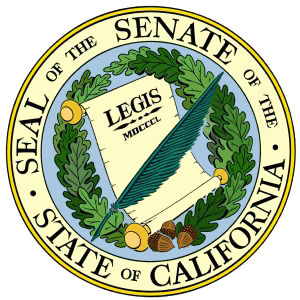 The Senate is considering minor amendments to a bill passed by both chambers to further restrict gifts to lawmakers. Senate Bill 1443 prohibits all gifts from lobbyists and reduces the value of gifts state officials can receive from a non-lobbyist source to $200 per calendar year.
The Senate is considering minor amendments to a bill passed by both chambers to further restrict gifts to lawmakers. Senate Bill 1443 prohibits all gifts from lobbyists and reduces the value of gifts state officials can receive from a non-lobbyist source to $200 per calendar year.
Currently, lobbyists may provide gifts of $10 per calendar month and officials can receive $440 from a non-lobbyist source per calendar year. The bill also prohibits giving tickets to most entertainment events, golfing green fees, and spa treatments.
August 20, 2014 •
WA Ethics Board Votes to Allow Legislators 12 Free Meals Per Year
The Washington Legislative Ethics Board has come to a preliminary conclusion as to how to define “infrequent occasions” as it relates to free meals accepted by the state’s legislators. Section 42.52.420 of the Revised Code of Washington allows public officials […]
 The Washington Legislative Ethics Board has come to a preliminary conclusion as to how to define “infrequent occasions” as it relates to free meals accepted by the state’s legislators. Section 42.52.420 of the Revised Code of Washington allows public officials to accept gifts in the form of food and beverage on infrequent occasions so long as attendance at such a meal is related to the performance of official duties.
The Washington Legislative Ethics Board has come to a preliminary conclusion as to how to define “infrequent occasions” as it relates to free meals accepted by the state’s legislators. Section 42.52.420 of the Revised Code of Washington allows public officials to accept gifts in the form of food and beverage on infrequent occasions so long as attendance at such a meal is related to the performance of official duties.
When the Legislature failed to pass any pertinent legislation defining infrequent occasions before its adjournment on March 13, 2014, the Legislative Ethics Board took up the issue. During its August 19, 2014, meeting, the board decided in a 5-3 vote to define infrequent occasions as 12 free meals per year. Under the proposed rule, a qualifying meal occurs when the guest would normally be expected to sit down and eat, such as in a restaurant or a private residence, as opposed to a legislative reception.
Other provisions of the rule, including a reporting requirement for legislators accepting free meals, are still under discussion. A final vote on the rule is scheduled for October 21, 2014.
Q. Do gift laws preventing registered lobbyists and employers from giving gifts to public officials, also prohibit gifts to the family members of public officials? A. Generally, in states that feature a prohibition on lobbyists giving gifts to public officials […]
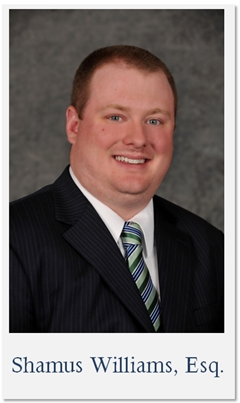 Q. Do gift laws preventing registered lobbyists and employers from giving gifts to public officials, also prohibit gifts to the family members of public officials?
Q. Do gift laws preventing registered lobbyists and employers from giving gifts to public officials, also prohibit gifts to the family members of public officials?
A. Generally, in states that feature a prohibition on lobbyists giving gifts to public officials or employees, the prohibition will extend to members of the public officials’ immediate family. However, immediate family is usually a defined term and will vary by jurisdiction.
For example, Alabama law prohibits lobbyists and employers of lobbyists from offering or providing a thing of value to a public employee, public official, or family member of a public employee or public official. The state defines a family member of a public employee as a spouse or dependent. A family member of a public official is defined as the spouse, dependent, adult child and his or her spouse, spouse’s parent, and siblings of spouse and their respective spouses.
In Kentucky, the General Assembly just passed House Bill 28, which extends the prohibition on gifts to family members of legislators or candidates. Effective July 14, 2014, registered legislative lobbyists will be prohibited from giving gifts to spouses or children of legislators or candidates for General Assembly.
In Pennsylvania, gifts are also prohibited to immediate family members of public officials, employees, or candidates for public office. They interpret immediate family members to include spouses, children, parents, and siblings.
However, not all states include family members in the gift prohibitions. Minnesota’s gift prohibition applies to public officials, employees of the Legislature, and local officials, but it does not extend to their family members.
Before giving a gift to a public official or employee, you should consult the jurisdiction’s ethics commission. Do not expect officials or their family members to know the applicable laws.
You can directly submit questions for this feature, and we will select those most appropriate and answer them here. Send your questions to: marketing@stateandfed.com.
(We are always available to answer questions from clients that are specific to your needs, and we encourage you to continue to call or e-mail us with questions about your particular company or organization. As always, we will confidentially and directly provide answers or information you need.) Our replies to your questions are not legal advice. Instead, these replies represent our analysis of laws, rules, and regulations.
July 14, 2014 •
Kentucky Changes to Lobbying Gift Law Take Effect
New restrictions on legislative lobbying expenditures take effect Monday, July 14, 2014. House Bill 28 includes a “no cup of coffee rule” to eliminate the gift exception allowing legislative lobbyists to spend $100 on food and beverage for a legislator. […]
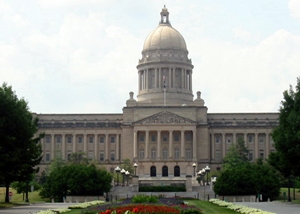 New restrictions on legislative lobbying expenditures take effect Monday, July 14, 2014. House Bill 28 includes a “no cup of coffee rule” to eliminate the gift exception allowing legislative lobbyists to spend $100 on food and beverage for a legislator.
New restrictions on legislative lobbying expenditures take effect Monday, July 14, 2014. House Bill 28 includes a “no cup of coffee rule” to eliminate the gift exception allowing legislative lobbyists to spend $100 on food and beverage for a legislator.
Legislative lobbyists and their employers are now also prohibited from providing out-of-state transportation or lodging for legislators.
Employers of legislative lobbyists are prohibited from making campaign contributions during a regular legislative session and required to disclose the cost of advertising supporting or opposing legislation.
State and Federal Communications, Inc. provides research and consulting services for government relations professionals on lobbying laws, procurement lobbying laws, political contribution laws in the United States and Canada. Learn more by visiting stateandfed.com.


